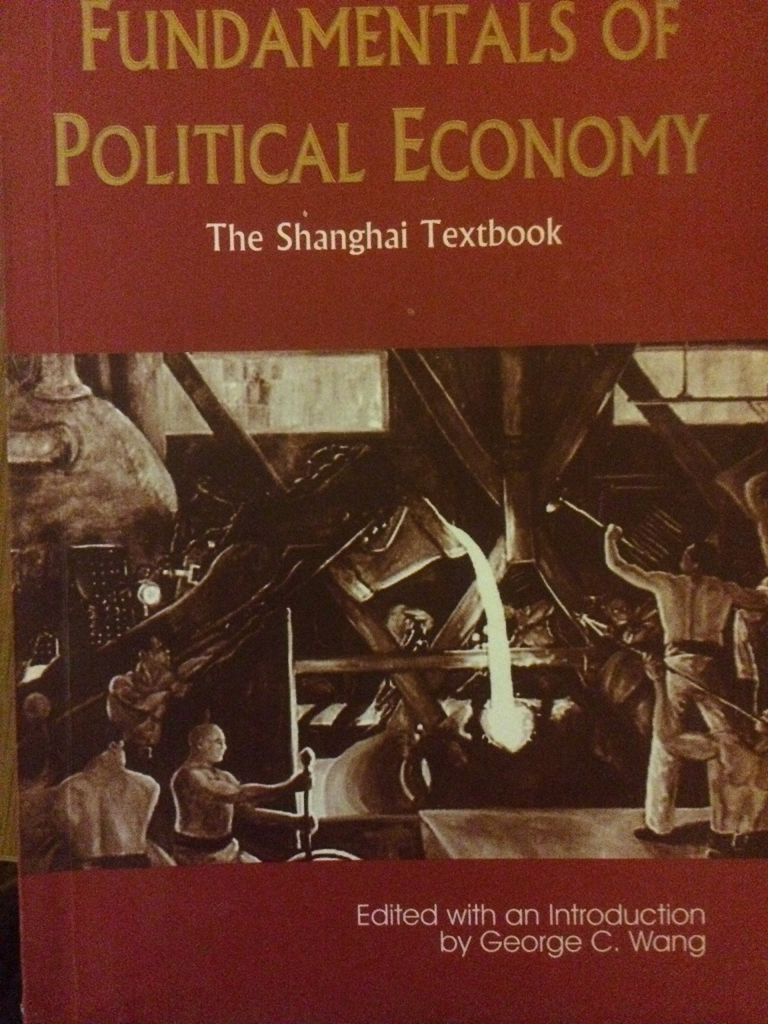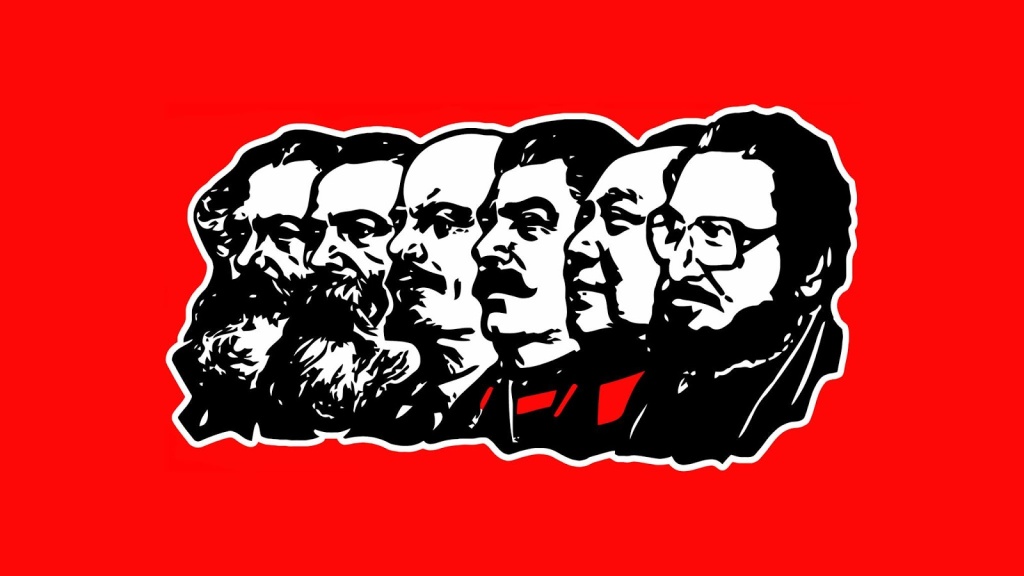Revolution is nothing without revolutionary theory. For the past 160 years, great comrades and communist thinkers have been developing the ideas behind our movement. From Marx’s creation of dialectical materialism to Mao’s guidelines of protracted warfare, communists wouldn’t be where we are at if it weren’t for the development of these concepts. It is of utmost importance that we learn and study Maoist theory because our revolution depends on it.
This study guide will be primarily focused on the classics of Marxism-Leninism-Maoism. Namely, books by Karl Marx, Friedrich Engels, Vladimir Lenin, Joseph Stalin, and Mao Zedong will be emphasized here. However, comrades should venture beyond the classics if they want to truly understand the ideology. Learn about history. Study modern philosophy. Go out into the world. Engage with your communist. And, last but not least, Workers of the World Unite!

Part 1: Foundations of Communism
Communism is the analysis of the conditions for the liberation of the people. With all of the flaws of capitalist society ever-present in our world, nothing less than revolution can bring a brighter future for humanity. But we all have to start somewhere. These easy-to-grasp texts provide a foundational understanding of the principles of our revolutionary world outlook.
MLM Basic Course
Some of us have no clue whatsoever about what Maoism is. If you are one of those types, that’s OK! We live in a society where it is taboo and “totalitarian” to be communist of any sort. This book will help give you an understanding of the fundamentals of our ideology.
The Communist Manifesto
Widely considered to be the founding text of the communist movement, this text provides a decent historical and political look into our ideology. It gives amateur comrades a sense of what Marxism is about, though it doesn’t go deep into theory.
Quotations From Chairman Mao Tse-Tung
Commonly known as the “Little Red Book” this is a great introductory text to Maoism. The book is quite encompassing, explaining the Maoist take on issues from philosophy to warfare. As was proven during the Cultural Revolution, this work truly ignites our minds in Maoist Theory.
Part 2: Political Economy
In simple words, political economy is the science of class struggles. It examines the creation of economic relations (also known as production relations) between different people and classes in different societies. Most of these texts examine the nature of primarily the capitalist and socialist stages of society. In this short list, you may learn the nature of commodities, the composition of capital, and the parasiticies of imperialism as well as the laws of planned economy, the consolidation of proletarian rule, and the struggle for the highest ideal of communism.
Fundamentals of Political Economy
Written in China during 1975, this textbook covers the economics and class structures of capitalism and socialism. Although the text is only 404 pages long, it hits all the targets when it comes to Marxist economics. Volume 1 concerns the nature of capitalist exploitation as Volume 2 covers the economics of the socialist system. If there is one text we can recommend to you to drastically change your political outlook, this one is definitely up there!

Wage Labour And Capital
Written by Karl Marx in 1847, Wage Labour and Capital provides for an in-depth explanation of the cycle of capital and the extraction of surplus value. It explains the inherently exploitative nature of the system and why humanity deserves better.
Value, Price, and Profit
Again by Marx (this time in 1865), this text uncovers many economic laws under which capitalism operates. As a much needed reminder that capitalism in fact does not entail a “free market”, it is quite a necessary read.
Das Kapital
While it’s quite a hard read, what you learn from Capital is a massive return on investment. Marx’s polemic dives deep into the myriad aspects of the capitalist system that we live under and brings to light the laws and method by which this brutal system operates. Once you close the cover, you’ll never be able to see the world the same way.
Imperialism: The Highest State of Capitalism
Vladimir Lenin writes about the modern developments of capitalism, specifically monopolization and globalization, which came to be known as imperialism. In this text are the new principles of the system and their atrocious effects on the workers of the world.
Economic Problems of Socialism in the U.S.S.R.
Moving on from the political economy of capitalism, this text examines and corrects various misconceptions about how socialist society is to function. Stalin teaches us that revolution continues into the socialist state and this never-ending struggle for liberation is by no means easy.
Leninism Or Social Imperialism?
This text, by Remin Ribao, explains the nature of the system of social-imperialism. As monopoly capital is transferred from the hands of private owners to the “proletarian” state, he argues, the exploitation of the proletariat hasn’t become a tad more humane.
The Laws Of Class Struggle In The Socialist Period
While short, this article gives an amazing explanation of how socialist society works. It also can give us a better understanding of the history of socialism in different countries around the world and their efforts to promote the line of the workers.

Part 3: Dialectical and Historical Materialism
Dialectical materialism is the philosophical outlook of the Marxist-Leninist-Maoist movement. It emerges from the scientifically proven notion that reality is objective and interconnected. It been developed by thinkers and philosophers ranging from Spinoza and Hegel in precapitalist times to Mao Zedong and Michael Parenti as of late. While our philosophy can be applied to the entire universe, it is of particular use as we apply it to the proletarian struggle in the form of historical materialism. As such, it’s important that we study it both to learn and change the world.
Dialectical and Historical Materialism
Joseph Stalin’s introductory text provides an easy-to-grasp understanding of the philosophical outlook of the communist party. While it is only 50 pages long, it’s loaded with centuries of philosophy and its applications to our struggle.
On Contradiction
This text explores the fundamental law of the universe, the law of the struggle of opposites. If you think deep enough, you will be able to apply it to your own life and see these “contradictions” in everything you do. It just happens to be that we’re quite a bit more effective at struggle the more we do so.
Theses on Feuerbach
Marx’s work explains the failures of philosophy and the need for it in political struggle. Within this text he criticized both contemplative materialism and bourgeoisie idealism, famously concluding “philosophers have hitherto interpreted the world; the point is to change it”.
Dialectics of Nature
Only through social practice can one’s knowledge of philosophy truly blossom. Engels’ work, while never published, explains how dialectical materialism takes shape in this world and beyond.
On Practice
Philosophers have hitherto interpreted the world; that’s because they don’t have the practical experience to change it. Mao Zedong writes in this pamphlet where we are to find the most correct ideas and how these ideas take shape in our minds. You’ll likely also apply these ideas to your daily life as well. Although it was written for use in the political sphere, the usefulness of dialectical materialism knows no boundaries.
Materialism and Empirio-Criticism
Written by Lenin in struggle against the opportunists of the Second International, this book tows the Marxist line of dialectical materialism into concrete struggle. It also goes into deeper philosophical content for comrades who wish to go into more advanced studies of Marxism-Leninism-Maoism.
Anti-Duhring; Philosophy
The first section of Engels’ polemic reviews and applies topics of philosophy. Known as “an attempt to produce a summary of the Marxist conception of philosophy, science and history”, it solidifies our understanding of the entire Marxist doctrine.
The Origin of the Family, Private Property, and the State
By Engels again, this text argues one of the fundamental axioms of Marxism-Leninism-Maoism; that the entirety society is shaped by the mode of production. He explains how not intrinsic human nature nor random agglomerations of events are responsible for a certain several societal developments but that their coming about is ultimately determined by the practice of production.
State and Revolution
Socialism is when the government does stuff. Capitalism is also when the government does stuff. Reading this work and studying the concepts and functions of a state enables you to go out in the world and do stuff.
Ethics
While Baruch Spinoza’s masterpiece dates a while back before the times of Marx, that doesn’t mean that it’s useless. It contains some of the foundations of dialectical philosophy required to truly understand our world outlook. Spinoza, after all, was considered one of the most brilliant philosophers by many of his contemporaries.
Part 4: Scientific Socialism and Proletarian Struggle
Socialism: Utopian and Scientific
This section of Engels’s Anti-Duhring makes the case for proletarian socialism. It helps us understand why socialism isn’t a utopia full of free stuff and must be brought about in intense struggles with the reactionary classes.
What is to be Done?
Lenin answers some of the burning questions of the communist movement in this work detailing the need for a Vanguard Party. It is the foundation for most of the political theories for revolutions of late.
One Step Forward, Two Steps Back
Revisionism has been the plague of the Marxist movement since it has existed. Lenin again discusses how it emerges, how communist should see it, and how we can combat it in our proletarian struggle.
Left-Wing Communism, an Infantile Disorder
Our final work of Lenin’s examines the trends of not rightist but left-wing opportunism in the communist party. As these trends are quite dangerous in the communist movement today, it is crucial that we understand them so they can be corrected.
On Protracted War
While previous writers have developed a general formula for effective struggle, Mao’s On Protracted War, is the first work to detail how we are to suceed in revolutionary warfare. What has been learned from this book is constantly being used in mass movements all around the world.
On New Democracy
Mao explains how to effectively struggle with the reactionaries imperialism, feudalism, and bureaucrat-capitalism when the proletariat is at the helm of society. It helps accelerate the journey of these evils into the museum of history from which there is no way out.
Some Questions Concerning Methods of Leadership
This book explains how the theory of the mass line is to be applied to practice under the socialist system. Again, it’s important that comrades read it in order to not be dogmatic and have a successful implementation of the system in practice.
On the Correct Handling of Contradictions Among the People
The final classic in this section, again by Mao, addresses the issue of disagreements among the mass people. It explains how a party is to remain strong and united in the face of difficulty and go down together the revolutionary road of communism.
Get new content delivered directly to your inbox.
